Department Of Surgery
-
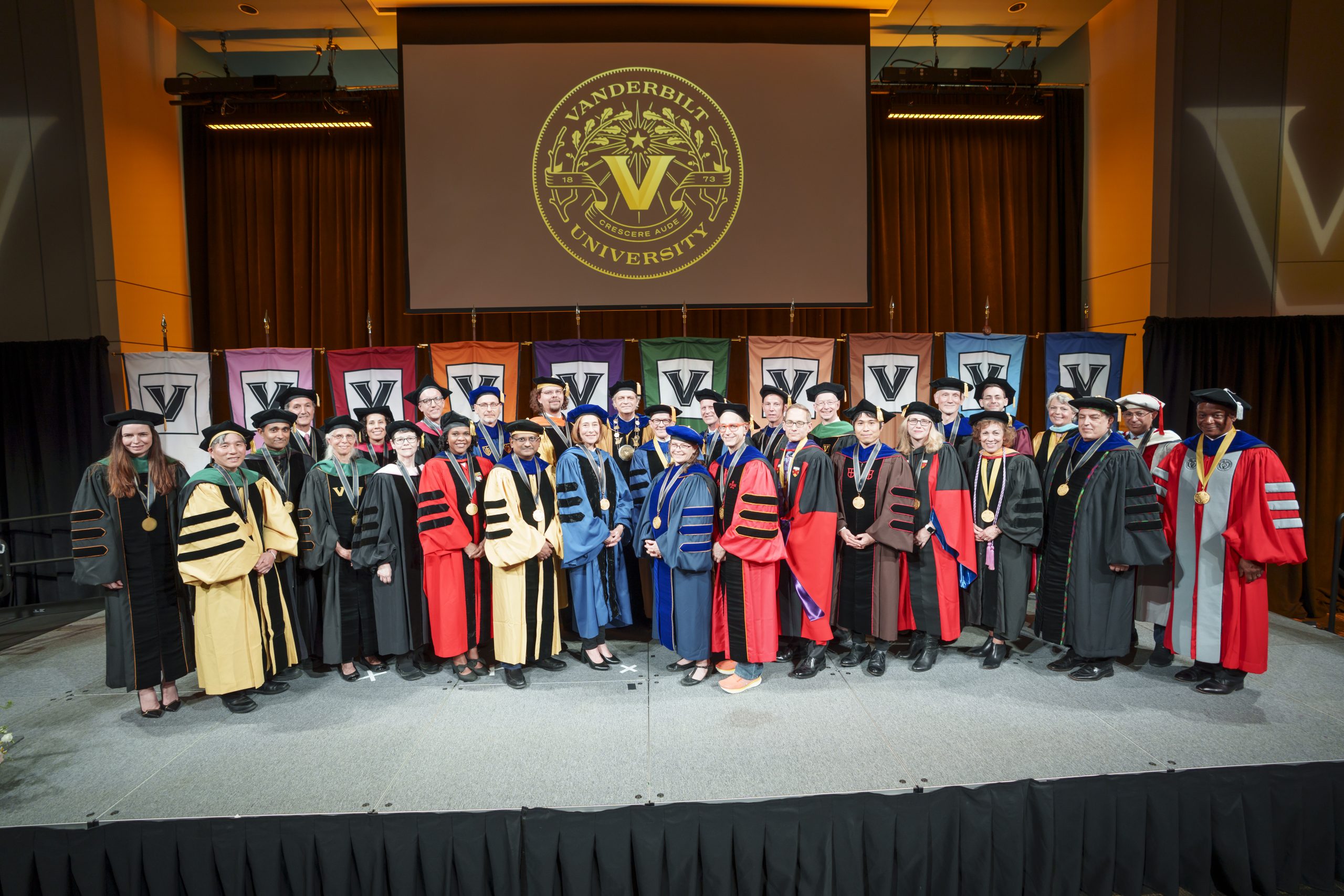
28 faculty honored at endowed chair investiture
The distinguished faculty members and deans representing eight colleges and schools were presented with medallions that symbolize the attainment of their positions and will become part of their official academic regalia. Chair holders contribute their expertise to real-world challenges, including climate change, political inequality and access to justice, artificial intelligence and ICU trauma. Read MoreApr 11, 2024
-
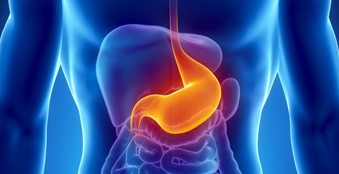
Fatty acids rewire energy supply chain in stomach cancer development
A study by Vanderbilt researchers has revealed how metabolic changes spurred by fatty acids contribute to the transformation of cells into abnormal versions of themselves that are the precursors to stomach cancer. Read MoreJan 31, 2024
-
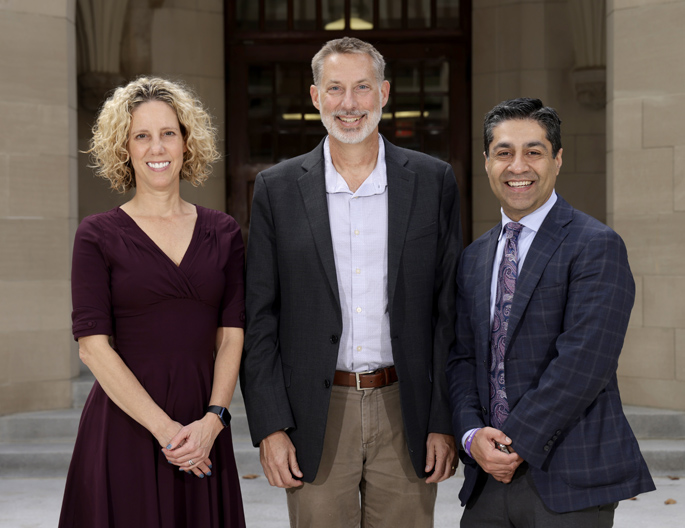
Vanderbilt-led team receives 2023 Endeavor Award from The Mark Foundation for Cancer Research
A multidisciplinary team of investigators has received a 2023 Endeavor Award from The Mark Foundation for Cancer Research to support four closely linked projects exploring the fundamental mechanisms that drive the obesity-cancer connection, Read MoreOct 24, 2023
-
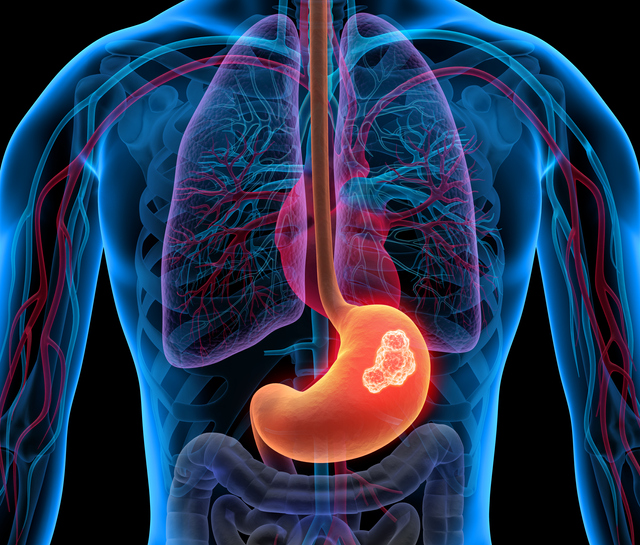
Study reveals new clue to gastric cancer
Researchers at Vanderbilt University Medical Center have uncovered evidence of fibroblast cells' direct involvement in the development of gastric cancer. Read MoreJul 7, 2023
-
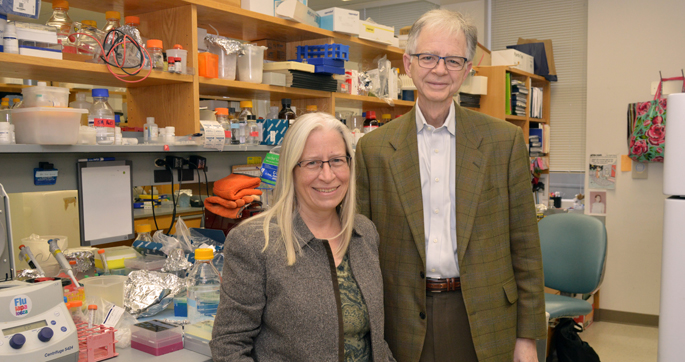
Researchers find potential new target against colorectal cancer
Researchers at Vanderbilt University Medical Center have discovered a potential new target in the fight against colorectal cancer, the nation’s third most common malignancy and, next to lung cancer, the second leading cancer killer. Read MoreJul 21, 2022
-

Study reveals how gastric cancer forms, suggests preventive treatment
Eunyoung Choi, PhD, assistant professor of Surgery, and colleagues identified for the first time that Trop2+/CD133+/CD166+ dysplastic stem cells are a key source of clonal evolution of dysplasia to multiple types of gastric cancer. Read MoreJun 23, 2022
-

Molecular ‘switch’ may illuminate stomach disorders
An international team that included researchers from Vanderbilt University Medical Center has discovered a molecular switch that induces rapid proliferation of zymogen granule-secreting chief cells in the stomach to regenerate damaged tissue. Read MoreMay 19, 2022
-
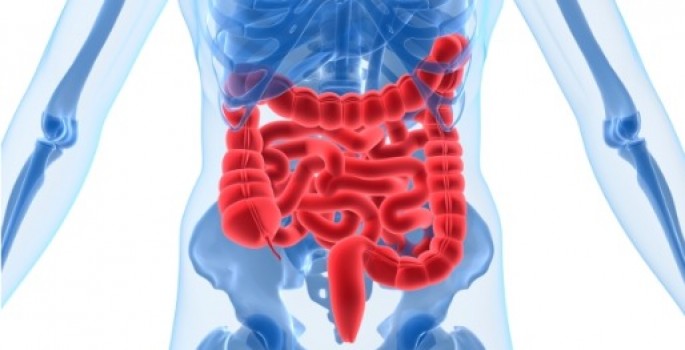
Diverticulitis surgery: guidelines needed
Surgical removal of the colon for recurrent diverticulosis varies by geographic region and is associated with surgeon and hospital factors; stronger national guidelines are needed, Vanderbilt researchers report. Read MoreFeb 10, 2022
-

Immune landscape in adrenal cancer
The profile of immune-related gene expression and tumor-infiltrating immune cells in adrenocortical cancer suggests targets for new treatment strategies. Read MoreDec 14, 2021
-
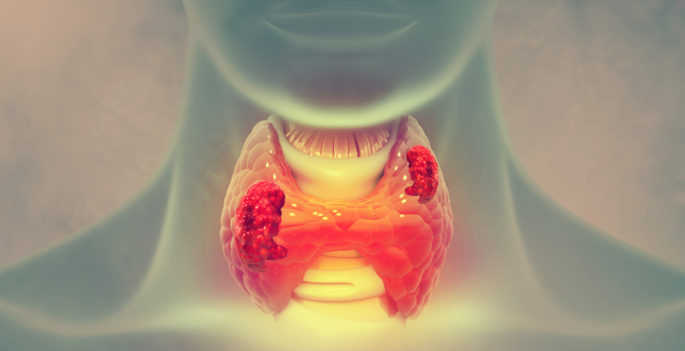
Thyroid cancer paper lands national recognition
Researchers in the Endocrine Neoplasia Research Laboratory at Vanderbilt University Medical Center have received national recognition for their work to discover better treatments for thyroid cancer. A paper describing their lab work was awarded first place in the Basic Science category at the 2021 Cancer Research Competition. Read MoreDec 2, 2021
-

Motor protein linked to intestinal cell differentiation
The motor protein MYO5B, a cause of the congenital intestinal disorder microvillus inclusion disease, does more than move cellular cargo, Vanderbilt researchers have discovered. Read MoreAug 5, 2021
-

New strategy to treat brain bleeding
Vasorelaxing peptides could offer a promising therapeutic strategy for reducing the neurological deficits caused by subarachnoid hemorrhage-induced cerebral blood vessel constriction. Read MoreMay 4, 2021
-
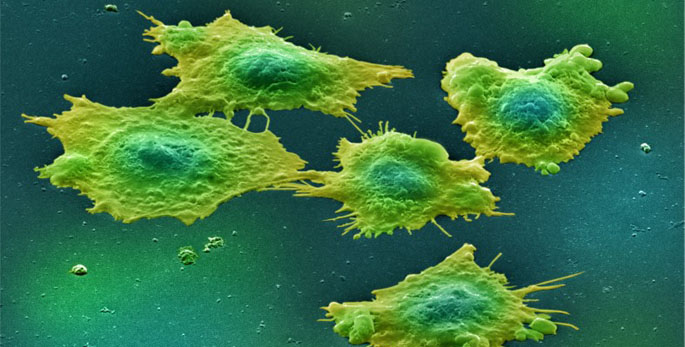
Protein’s role in inflammation-related cancer studied
Investigators are exploring the molecular mechanisms behind the association of chronic inflammation and colon cancer. Read MoreAug 15, 2019
-
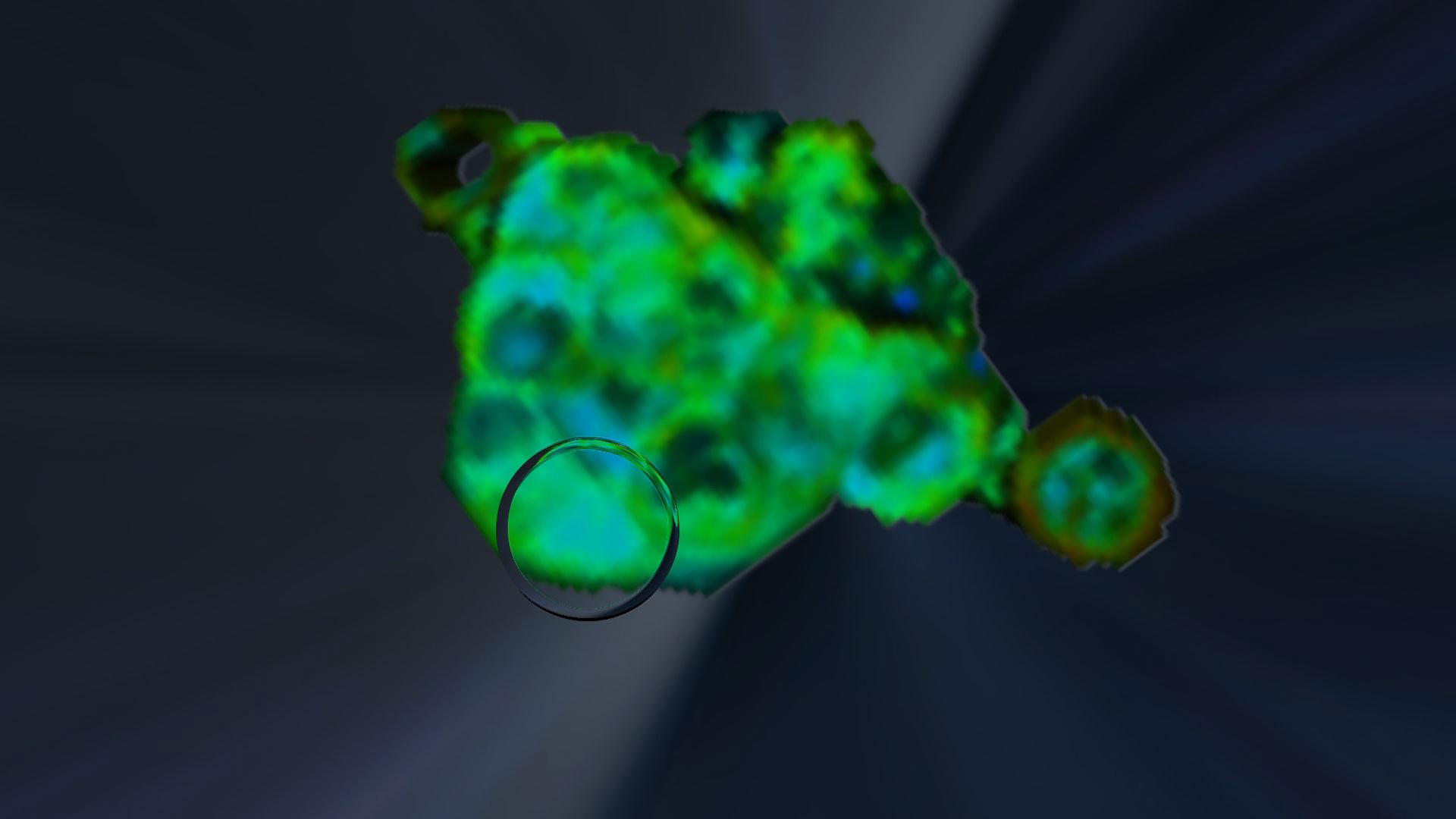
Pancreatic cancer clue
Inflammation synergizes with a cell’s intrinsic genetic program to promote the development of pancreatic cancer. Read MoreAug 12, 2019
-
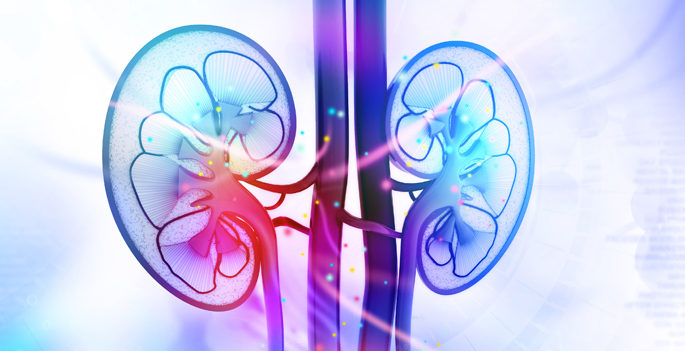
New option could increase minority kidney transplants
People with blood type B, a relatively rare blood type, can expect similar outcomes from kidney transplants from type A2 donors, which increases the number of available kidneys for these patients. However, it requires additional monitoring and medication that can raise costs for patients. Read MoreFeb 7, 2019
-
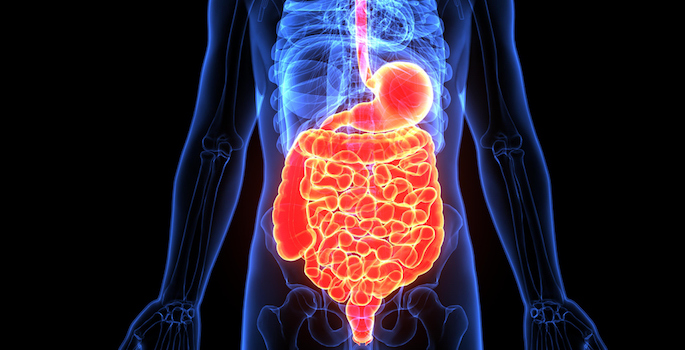
Major grant to bolster research on inflammation-related cancers
Cancer Research UK has awarded a 20-million-pound grant (about $26 million U.S.) to a team of international investigators, including Vanderbilt’s James Goldenring, Eunyoung Choi and Jimin Min to study inflammation-related cancers. Read MoreJan 25, 2019
-

Bile acids mediate metabolic benefits of weight-loss surgery
A team of Vanderbilt investigators has pinpointed the role of bile acids and a specific signaling pathway in the positive metabolic effects of weight-loss surgery. Read MoreJan 10, 2019
-

New analysis suggests lepers may not have been pariahs in Jesus’ time
New insights into how disease and impurity were viewed in first-century Jewish society suggests scholars may need to reevaluate how they interpret Jesus' interaction with people affected by leprosy. Read MoreJan 10, 2019
-

Investigators find that bile acids reduce cocaine reward
The discovery that high levels of bile acids appear to blunt cravings for cocaine could lead to new treatments for addiction. Read MoreAug 30, 2018
-

Karp to succeed Beauchamp as Surgical Section leader
After successfully leading Vanderbilt University Medical Center’s Section of Surgical Sciences and serving as the Medical Center’s Surgeon-in-Chief since 2001, R. Daniel Beauchamp, MD, the John Clinton Foshee Distinguished Professor of Surgery, is stepping down. Beauchamp will be succeeded in this role by Seth Karp, MD, H. William Scott Jr. Professor and chair of the Department of Surgery and director of the Vanderbilt Transplant Center. Read MoreApr 5, 2018